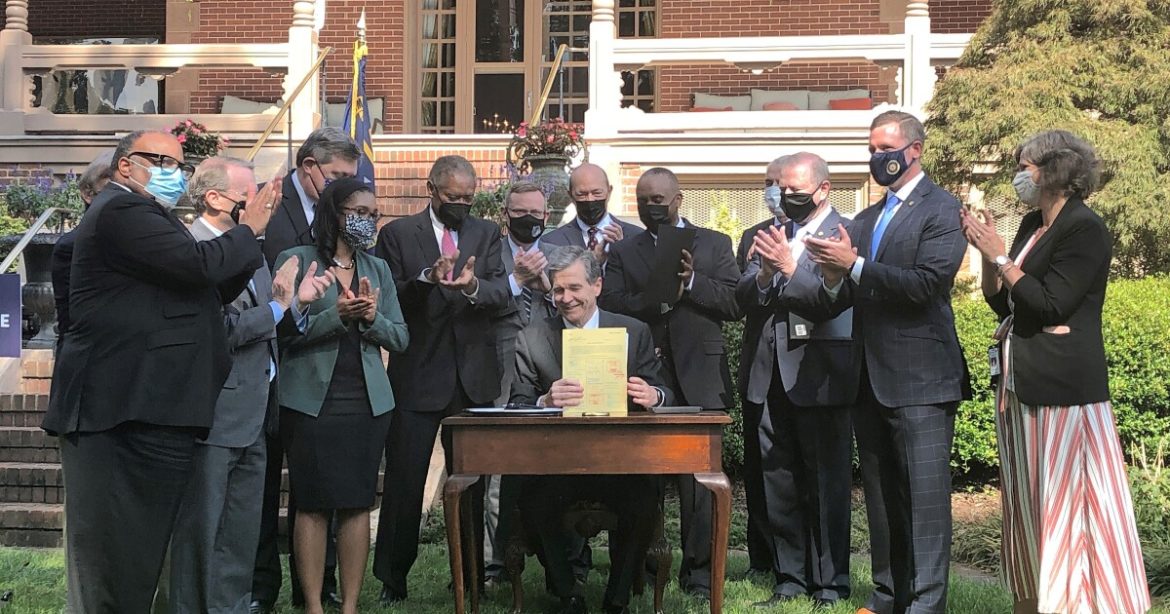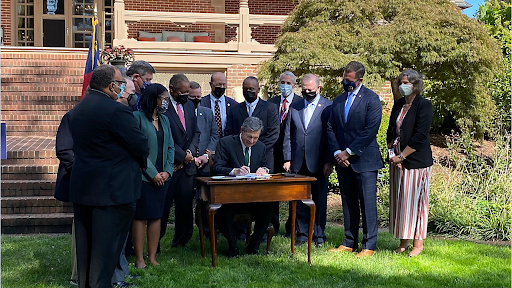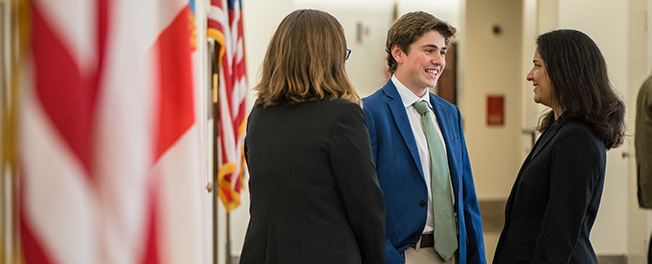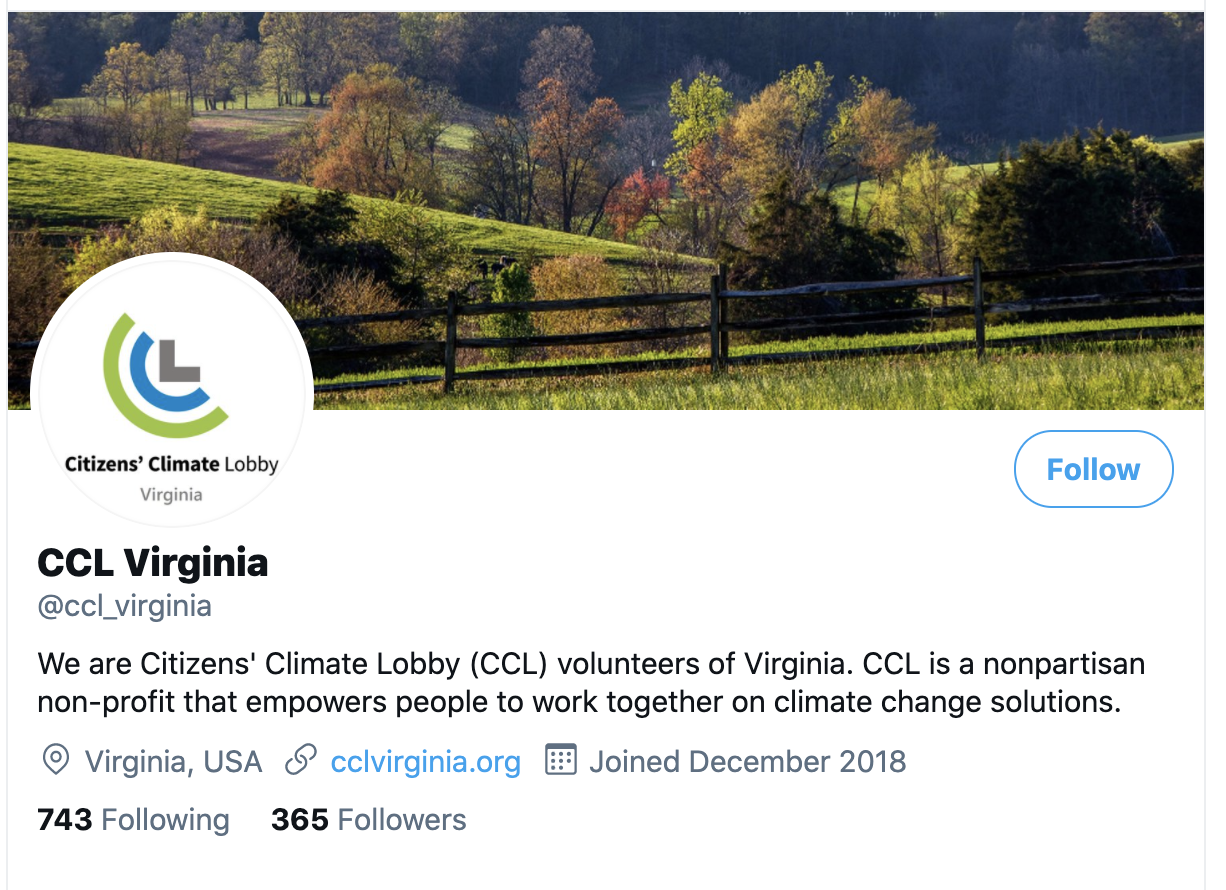
Bipartisan Climate Victory: North Carolina’s House Bill 951
By: Alex Lei
On October 13, 2021, Democratic Gov. Roy Cooper of North Carolina signed into law House Bill 951, an extensive climate and energy bill that passed the North Carolina General Assembly, a Republican majority state legislature. In a statement, Cooper said, “I am encouraged that we have been able to reach across the aisle to find a way forward that will update our energy systems while saving people money and doing our part to slow climate change.”

Gov. Roy Cooper (center) speaks at the signing ceremony of House Bill 951, flanked by leaders of both parties in the North Carolina General Assembly, the state legislature. AP Photo/Gary E. Robertson.
The bill’s goal is to achieve a 70% reduction in North Carolina’s carbon emissions from 2005 emissions levels and net-zero carbon emissions by 2050. This bill requires that the state utilities commission examine “power generation, transmission and distribution, grid modernization, storage, energy efficiency measures, demand-side management, and the latest technological breakthroughs” to determine a plan for reducing carbon emissions in the state.
This bill also contains provisions that will retire existing coal-powered plants in North Carolina and replace them with a mix of more sustainable energy sources, such as large-scale solar energy installations.
The law allows Duke Energy, the state’s largest energy company, to “seek multiyear rate increases and performance-based earnings incentives from the state Utilities Commission”(Associated Press). According to Energywire’s Kristi Swartz, this would allow Duke to “recoup the costs of its investments without having to seek annual approval from regulators, and would decouple, or break, the link between the company’s revenues and energy consumption,” which Energywire describes as “something that has been a significant barrier to the clean energy transition.” Critics argue that this gives too much leeway to Duke Energy and may cause energy prices to increase, which would hit poorer North Carolinians harder.
Despite some potential flaws, the bill is special in that it was signed into law by a Democratic governor but passed by a Republican-held legislature. This is a crucial step for state-level climate action and shows that bipartisanship, however difficult to come by, is still possible.
However, achieving this bipartisan bill was no easy feat. North Carolina’s Democratic governor and Republican-dominated General Assembly have long been at odds; as of October 2021, the state has been unable to pass a budget due to disagreements between the governor and legislature. House Bill 951 went through 49 versions before the final version was passed, according to a local news station. Negotiations for the bill nearly collapsed before the governor and the state legislative leaders made a last-minute bargain to keep the bill alive.

Gov. Cooper (center, sitting at desk) signs the bill into law. Photo: Charles Duncan, for Spectrum Local News.
Despite these troubles, bipartisanship prevailed, as the final version of House Bill 951 had strong bipartisan support in both houses of the North Carolina General Assembly. Republican and Democratic legislators, despite not agreeing with the bill in its entirety, agreed on a compromise that allowed the bill to pass. This energy bill is a huge step forward for sustainability in North Carolina and serves as a model of bipartisanship for other legislatures, and a beacon of hope for CClers who are dedicated to promoting bipartisan climate legislation in their communities and on a national scale.
Alex Lei is a CCL volunteer based in the Silicon Valley area. He is a member of the CCL Silicon Valley North (SVN) chapter, the SVN Letter Writing Team, and CCL’s Conservative Caucus. He is a graduate of the University of California, Davis, where he majored in biology and minored in professional writing. While at UC Davis, he was the president of the university’s chapter of Young Americans for Liberty, a libertarian student organization.




